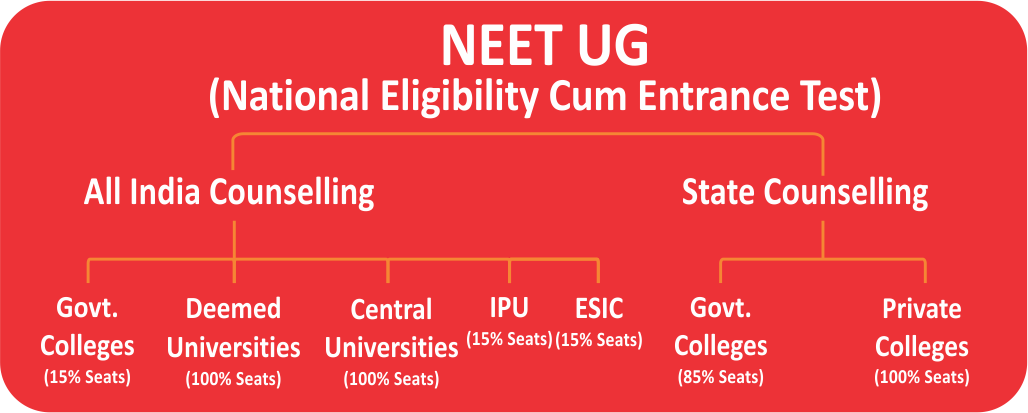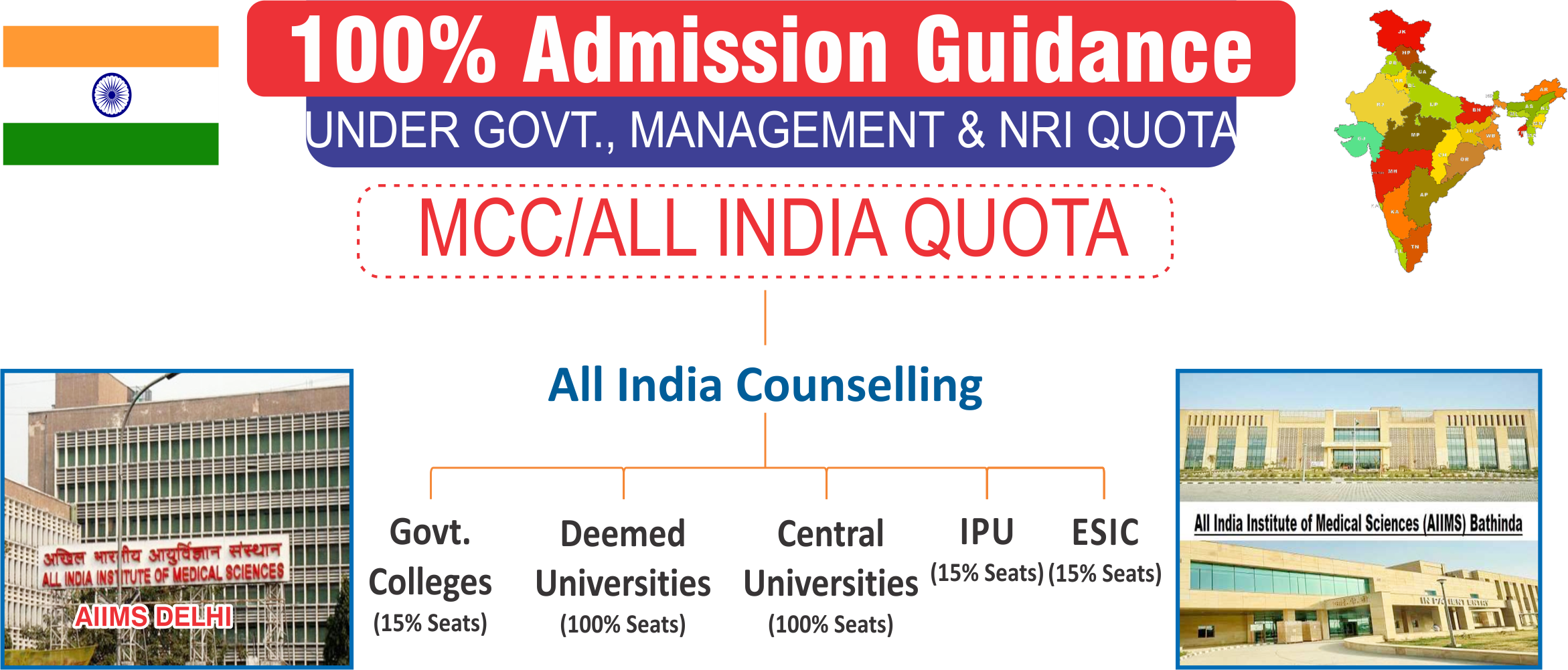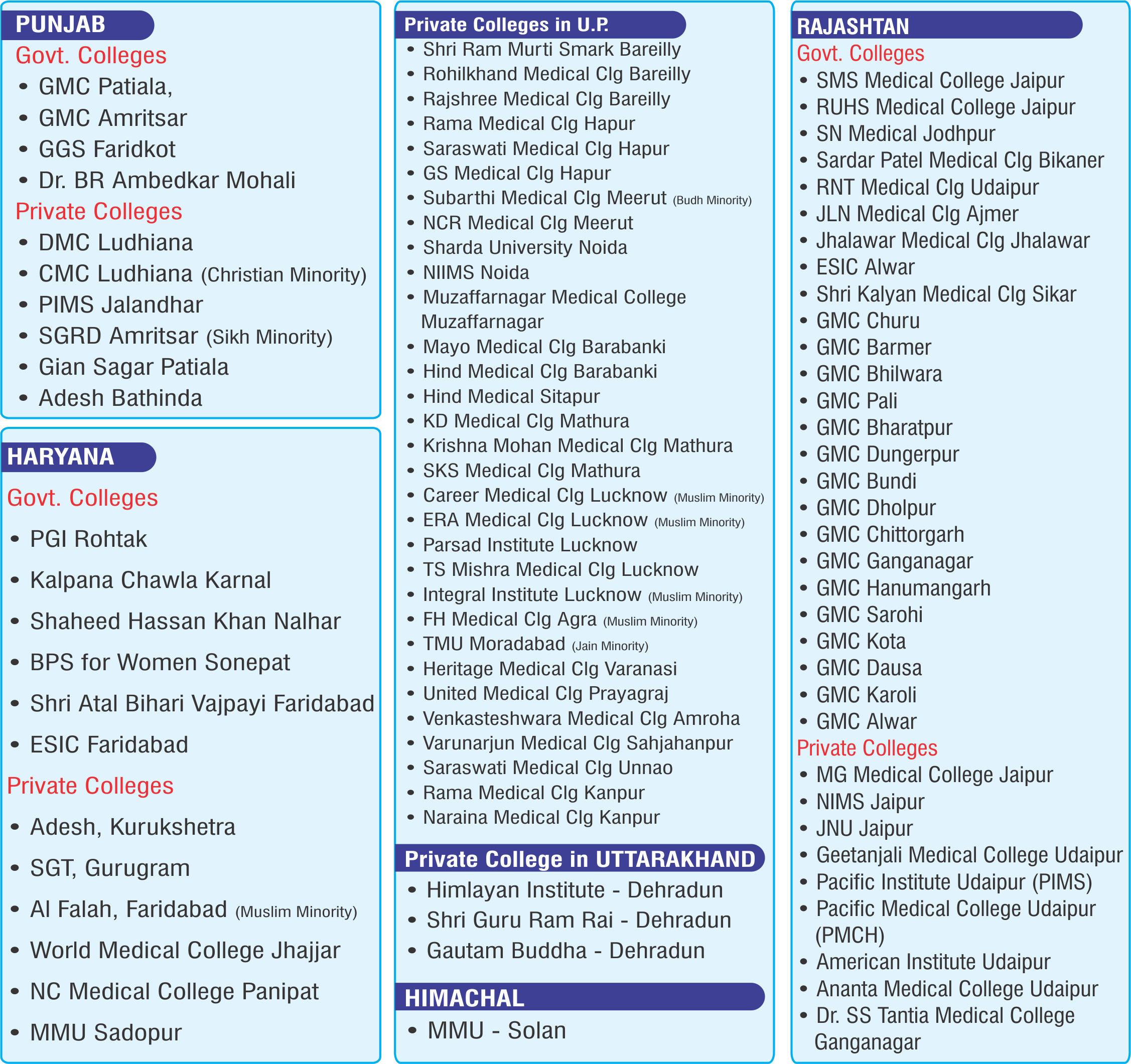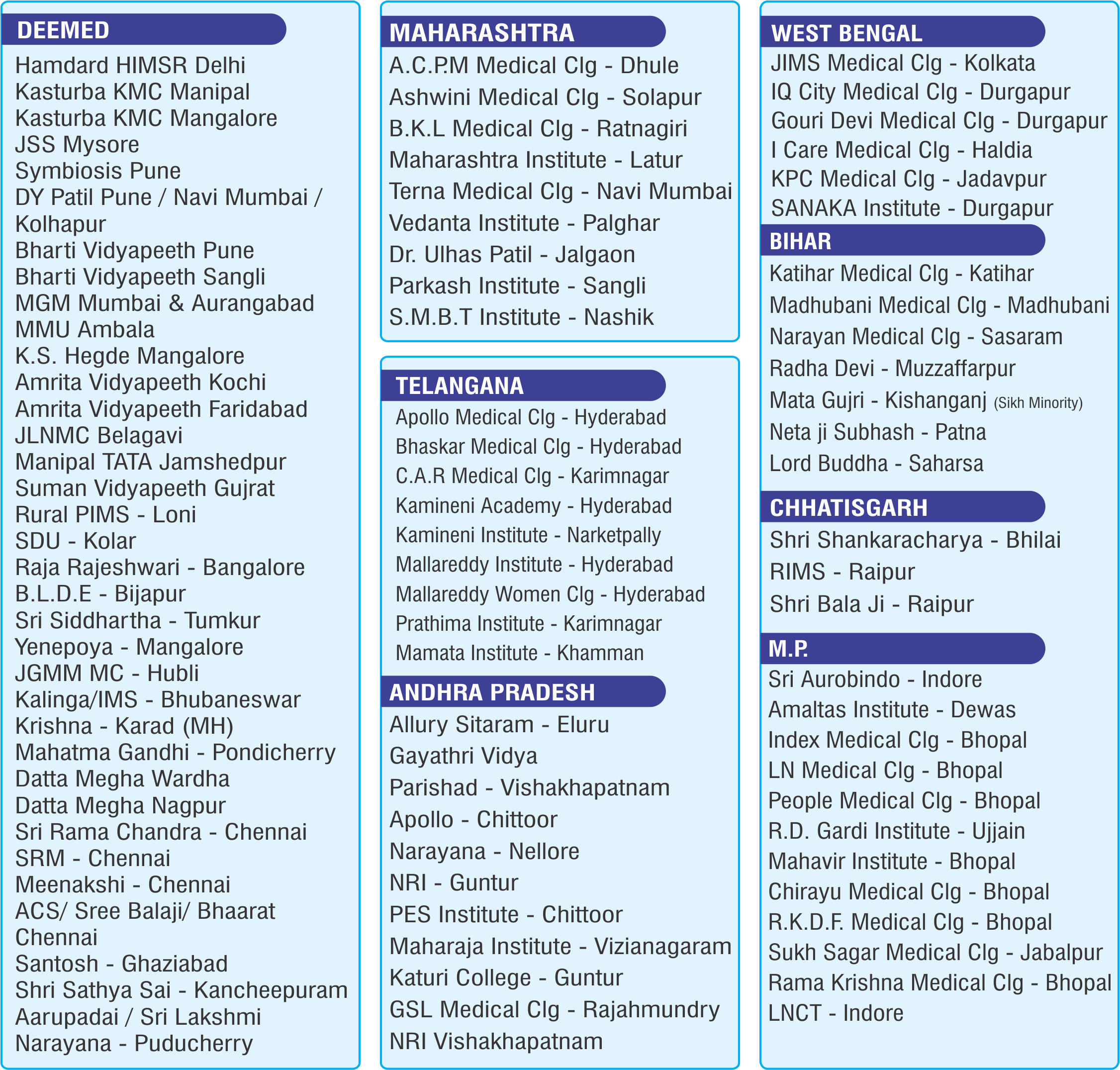
MBBS in India - Your Pathway to Becoming a Doctor
Studying MBBS in India is a big dream for many aspiring Students. To get in, students need to pass the NEET exam after scoring at least 50% in their 12th-grade exams. The course spans 5.5 years, with the first 4.5 years for classes and the last year for an internship. Indian universities are well-respected globally, approved by WHO and NMC. The academic year usually starts around September or October, and students can apply between June and July. What's great is that prestigious institutions like AIIMS offer affordable fees, sometimes as low as Rs. 10,000 per year. For All India Quota students, the fees can range from Rs. 50,000 to Rs. 2,00,000 annually. In 2023, more than 21 lakh students aimed for MBBS seats, showing how much people value this respected profession in India.
Tentative Details of Medical Colleges & Seats in India
| Sr No. | State/Union Territory | Govt. College | Private College | Govt. College Seats | Private College Seats | Total No. of Seats |
|---|---|---|---|---|---|---|
| 1 | Punjab | 4 | 6 | 700 | 800 | 1500 |
| 2 | Haryana | 6 | 7 | 835 | 950 | 1785 |
| 3 | Chandigarh | 1 | - | 150 | - | 150 |
| 4 | Rajasthan | 25 | 9 | 3800 | 1650 | 5450 |
| 5 | Uttar Pradesh | 30 | 32 | 3828 | 5600 | 9428 |
| 6 | Delhi | 7 | 2 | 1115 | 250 | 1365 |
| 7 | Andhra Pradesh | 17 | 18 | 3115 | 3050 | 6165 |
| 8 | Assam | 11 | - | 1500 | - | 1500 |
| 9 | Bihar | 13 | 8 | 1595 | 1150 | 2745 |
| 10 | Chattisgarh | 11 | 3 | 1430 | 450 | 1850 |
| 11 | Gujarat | 22 | 16 | 4200 | 2650 | 6850 |
| 12 | Himachal Pradesh | 6 | 1 | 720 | 150 | 870 |
| 13 | Jharkhand | 6 | 2 | 630 | 250 | 880 |
| 14 | Karnataka | 25 | 35 | 3900 | 6205 | 10105 |
| 15 | Kerala | 12 | 21 | 1755 | 2950 | 4705 |
| 16 | Madhya Pradesh | 14 | 12 | 2275 | 2400 | 4675 |
| 17 | Maharashtra | 31 | 23 | 4625 | 3340 | 7965 |
| 18 | Orissa | 11 | 3 | 1675 | 350 | 2025 |
| 19 | Pondicherry | 2 | 3 | 380 | 800 | 1180 |
| 20 | Tamil Nadu | 37 | 27 | 5200 | 4850 | 10050 |
| 21 | Telangana | 27 | 28 | 3780 | 4600 | 8380 |
| 22 | Uttarakhand | 4 | 3 | 575 | 450 | 1025 |
| 23 | West Bengal | 25 | 9 | 3695 | 1500 | 5195 |
| 24 | Jammu & Kashmir | 10 | 1 | 1177 | 100 | 1277 |
| 25 | AIIMS | 20 | - | 2044 | - | 2044 |
| 26 | JIPMER | 2 | - | 243 | - | 243 |
| 27 | DEEMED | 51 | - | 9650 | - | 9650 |
| 28 | Goa | 1 | - | 180 | - | 180 |
| 29 | AMU & BHU | 2 | - | 250 | - | 250 |
| 30 | Tripura | 1 | 1 | 125 | 100 | 225 |
Our Services for MBBS in India
- 100% Confirmed MBBS Admission in India at any NEET Qualified Score.
- Get on-time NMC Notifications.
- AIQ and State wise NEET Counseling Updates.
- Documentation, Registration, Choice filling, Seat Allotment & Fees Payment.
- Help to negotiate fees of medical colleges for lower the budget.
- One to one candidate admission support.
- Share availability of colleges in India as per NEET Score.
- Special Guidance for Mop-Up and Stray round seats.
- Analysis of past years cut-offs for present year admission in India.
- Expertise in NRI quota admission.
- Education Loan assistance subject to bank formalities.
- Experience of thousands of success stories to provide dream colleges to candidates.
MCC - All India Quota
MCC finalise the counselings schedule and procedure for the admissions of all India Quota and States.
MCC counseling consists following:
- 15% seats of all India Quota seats of all States's Govt. colleges.
- 100% MBBS/BDS seats of BHU (Banaras Hindu University).
- 100% seats of all the AIIMS across India.
- 100% seats of JIPMER (Puducherry/Karaikal).
- 100% seats of AMU (Aligarh Muslim University).
- 85% State Quota seats of DU/IP university of Delhi (VMMC/ABVIMS/ESIC Dental).
- 100% seats of Jamia Milia Islamia Faculty of Dentistry along with 5% internal Quota of Jamia Students.
- 15% IP(Insured Person) Quota seats of ESIC.
- BSC Nursing in top colleges of India.
Top Colleges and Universities All Over India
Specific Information About MBBS in India
Admission for MBBS programs in India follows centralized online counseling, welcoming candidates according to their entrance exam rankings. NEET, a national-level exam, is the gateway to esteemed institutions like AIIMS, JIPMER, Govt. Colleges, Private Colleges, and Deemed Universities. To begin MBBS studies, ensure you gather comprehensive information. Entry into government, private, central, and deemed universities is contingent upon NEET scores. Unique exceptions exist for AIIMS and JIPMER, Puducherry, conducting their respective entrance exams for MBBS programs in India.
The Medical Council of India oversees MBBS courses and admissions in India, predominantly through the highly competitive NEET UG entrance Examination. Since 2017, state governments reserve 85% of medical seats based on NEET Scores. Additionally, many private colleges allocate 40% of seats under a management quota, requiring a minimum of 50% marks in Science Subjects for eligibility. This framework aims for equitable access while ensuring opportunities for eligible candidates through management quotas.
The Remarkable Advantages of MBBS in India
Embark on a rewarding journey in the medical field within India's top-notch institutions, offering a myriad of advantages and unique opportunities.
The following are the various benefits of studying medicine in India:
- India houses premier medical institutions renowned for their global excellence in training and research programs, offering top-tier education under the guidance of esteemed faculty.
- With over 300 medical universities and colleges, including approximately 180 private colleges, students have abundant choices for quality education.
- The country provides a substantial number of patient cases, fostering a comprehensive understanding of diverse medical complexities and broadening one's medical expertise.
- The MBBS education in India is hands-on, immersing students in real medical emergencies, preparing them extensively for future clinical practice.
- Studying in one's homeland fosters a sense of pride and belonging, enabling students to stay connected with family, culture, and local comforts.
- Graduating from an Indian medical college eliminates the need for additional qualifying exams like the NMC Screening Test or the FMGE exam, easing the transition into medical practice.
- Upon MBBS completion, students are promptly licensed to practice, and government medical colleges offer education at minimal fees, ensuring affordability for many.
- Completing an MBBS in India is cost-effective, with students often finishing their studies within a budget of 3-5 lakhs, making education accessible to a broader spectrum of individuals.
- The curriculum consistency across all medical colleges, both government and private, ensures uniformity and quality education throughout the country.
- Attending international and national conferences during the course enriches students' exposure, fostering networking and learning opportunities on a global scale.
- The education prepares students for diverse career paths, facilitating job applications, and the pursuit of postgraduate studies with ease.
- The robust education system and renowned medical colleges in India pave the way for students to excel in the field, positioning them for a successful medical career globally.
Studying MBBS in India offers exceptional benefits. Renowned for quality education and diverse patient cases, it fosters cultural ties while providing affordable, uniform learning. Immediate licensing and a robust curriculum empower graduates for seamless medical practice, ensuring a prosperous, globally recognized career.
Recognition of Indian Medical Universities
The following renowned medical bodies acknowledge Indian medical universities:
- National Medical Commission (NMC).
- World Health Organization (WHO).
- United Nations Educational, Scientific and Cultural Organization (UNESCO).
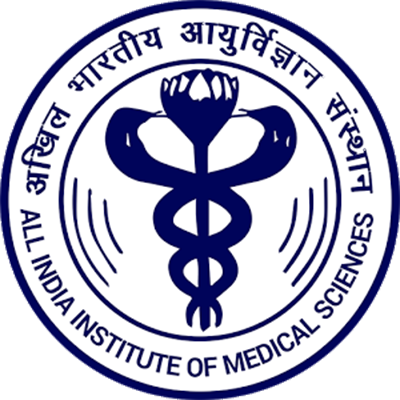
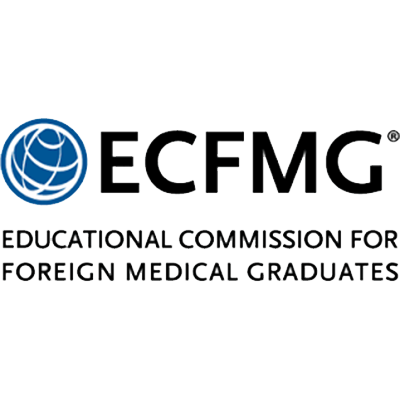
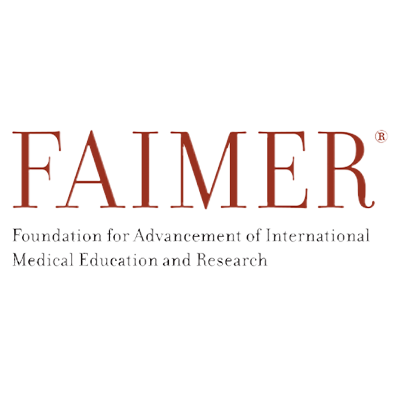



MBBS in India: Cost, Duration and Eligibility
- The expenses towards living in India for international students are comparatively less. The monthly cost comes around INR 15,000-30,000 based on the student’s style of living. The living cost includes accommodation or rental, food expenses, internet usage, entertainment, transportation costs, and phone bills.
- The duration of the MBBS program in India typically spans 5.5 years, encompassing 4.5 years of extensive classroom learning, followed by a dedicated final year for an internship.
- Postgraduate programs generally require a commitment of 3 years to delve deeper into specialized studies.
- Diploma courses, an alternative route, conclude within a span of two years.
- Different specialization programs have varied durations based on their field of study.
- Eligibility criteria for MBBS in India include age requirements, where candidates should ideally be at least 17 years old at admission and not exceed 25 years.
- Academic qualifications necessitate a minimum of 50% in the 12th-grade exams for general category students and 40% for reserved category candidates, with variations for institutions like AIIMS and different categories.
- Mandatory subjects for eligibility are Physics, Chemistry, and Biology in the 12th-grade curriculum.
- Aspiring medical students must clear NEET and may consider other entrance exams like JIPMER, AIIMS, Kerala CEE, Karnataka CET, among others.
Documents Required for MBBS in India
Candidates aspiring for MBBS admission in India must prepare and present the following essential documents:
- Valid documentation of academic achievements including the 10th and 12th-grade mark sheets is necessary.
- A NEET scorecard is a mandatory prerequisite for securing admission to MBBS programs in India.
- Essential certificates such as school transfer, code of conduct, medical fitness, health check-up, and a clean criminal record are required for admission.
- Having a passport along with its photocopies is an imperative part of the application process.
- A caste certificate indicating SC/ST/OBC status is essential for eligible candidates.
- Applicants should provide their parents' bank statements as proof of financial capability to cover the requisite fees during admission.
Process of Admission for MBBS in India
- Finish high school with Physics, Chemistry, and Biology subjects.
- Pass the NEET exam for MBBS admission.
- Attend counseling sessions after NEET qualification.
- Consider other exams like AIIMS and JIPMER for more options.
- If targeting specific AIIMS institutions, take their respective entrance tests.
- Based on exam scores, colleges are allotted during counseling.
- Upon acceptance, submit documents, pay fees, get hostel enrollment, and start your medical journey.
Teaching Techniques Adopted for MBBS in India
- The academic year for Indian MBBS programs typically starts in September.
- English is the primary language used for teaching in Indian MBBS programs.
- Local languages are commonly utilized across various medical universities in India.
- Language doesn't pose a barrier as most students are well-versed in Hindi, the widely spoken language.
- The National Medical Commission (NMC) provides a directory of Indian medical colleges providing education in English.
Great Career after Completing MBBS in India
- After obtaining your MBBS degree, a myriad of career prospects await, endorsed by the National Medical Commission (NMC).
- Explore diverse job opportunities within the clinical sector, unlocking avenues for professional growth.
- Opt for internships in numerous hospitals, gaining invaluable hands-on medical experience.
- Pursue postgraduate studies, preparing for specialized streams through PG NEET examinations.
- Numerous esteemed medical colleges offer a spectrum of PG courses tailored to your interests.
- Consider pursuing PG courses abroad, expanding your horizons and accessing global medical universities.
- Embark on a path to quality education and a thriving clinical profession by choosing to pursue MBBS India.







